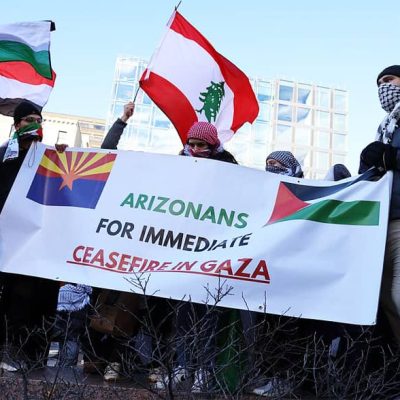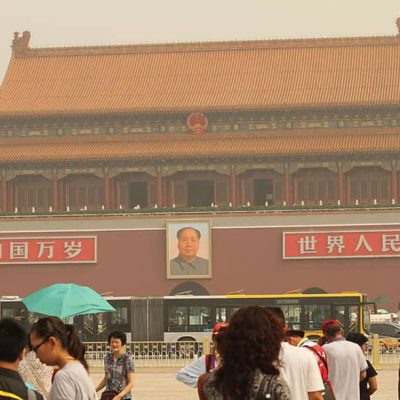 Appeals
Appeals
Education in Tibet.
Featured Image: Foto de 和 平 en Unsplash.
17 Feb 2023 – Three United Nations Human Rights Council Special Rapporteurs have recently highlighted the quality and methods of education of Tibetan students. Farida Shaheed; Special Rapporteur on the Right to Education, Fernand de Varennes, Special Rapporteur on Minortiy Issues, and Alexandra Xanthaki, Special Rapporteur in the field of Cultural Rights; first expressed their concern in a private letter to the U.N. Mission of China in Geneva.
This is the standard procedure of first trying to discuss an issue with the authorities of the State concened. Therefore, when the reply of the government is non-existent or superficial; then the Special Rapporteurs can “go public” either in their report to the Human Rights Council or with a press release as is the case with Tibetan education.

Farida Shaheed, Pakistani sociologist and women’s rights activist (2016). By Wotancito, CC BY-SA 4.0 <https://creativecommons.org/licenses/by-sa/4.0>, via Wikimedia Commons.
The 6 February 2023 U.N. Press Release quotes fully the statement sent to the Chinese Mission. The Special Rapporteurs highlighted the one million Tibetan school children sent far from home to be in residential boarding schools. The Special Rapporteurs are:
” very disturbed that in recent years the residential school system for Tibetan children appears to act as a mandatory large-scale programme intended to assimilate Tibetans into majority Han culture, contrary to international human rights standards…. This increase in the number of boarding Tibetan students is achieved by the closure of rural schools in areas which tend to be populated by Tibetans and their replacement by township or county-level schools which almost exclusively use Putonghua in teaching and communication.”
Putonghua is the official name for what is usually called “Mandarin Chinese.”
Re-Education.
Recently, there has been more international media and governmental attention given to the repression and “re-education” of the largely Muslim Uighur. Less attention has been given to policies in Tibet, but from the Chinese government position, the issues are very similar. In both cases, an ethnic minority is a majority population in a large frontier area. In both cases, the population in question is bound together by a common religion: Islam for the Uighur, the Tibetan Buddhist tradition for the Tibetans.
The Chinese government is fearful that groups advocating violence will influence the Uighur as there are a good number of such Muslim advocates in Central Asia and the wider Middle East. The major external influence on the Tibetans is the Dalai Lama, and he has repeatedly stressed non-violence in activities, including protests of Chinese government policy. Thus the government’s greater fears of violence among the Uighur. Repression has focused not only on students but on adults as well.
Sakya Monastery, Tibet. Sakya Monastery was founded in 1073, by Konchok Gyelpo and is situated about 130 km west of Shigatse on the road to Tingri. By I, Luca Galuzzi, CC BY-SA 2.5 <https://creativecommons.org/licenses/by-sa/2.5>, via Wikimedia Commons.
Crackdown on Buddhism in Tibet?.
The name of the game.
Finding the right balance between maintaining alive a minority culture through education in the minority language and the need for education in the national language is not easy to find. Education in English has served to develop “American population” in the U.S.A.
The languages of the American Indian tribes has been reduced to folklore. Finding the right balance for Tibetan students will not be easy to develop even if there were no political issues at stake. However, politics is “the name of the game.”
Public statement on the education of Tibetan students.
The U.N. Human Rights Council has a number of Special Rapporteurs devoted to certain sensitive themes or to specific countries. These Special Rapporteurs are independent experts selected by the Council. They are not members of the Secretariat and are not paid, but their expenses are covered when in Geneva or on mission. The idea for the creation of the Special Rapporteurs was to give them as much independence as possible from pressure of both governments and the U.N. Secretariat. The U. N. Special Rapporteurs public statement on the education of Tibetan students will draw new attention to an issue which merits being closely watched.
René Wadlow, President, Association of World Citizens.

President, Association of World Citizens (AWC).
Estudied International relations in The University of Chicago.
Estudied Special Program in European Civilization en Princeton University
Here are other publications that may be of interest to you.
Burma’s Crumbling Junta
February first marked the anniversary of the military coup which overthrew the government of Aung San Suu Kyi in 2021. She was in practice the leader of the government but…
Preventing the Expansion of the Gaza Conflict: Are Peace Brigades a Possibility?
Antony Blinken, the U.S. Secretary of State, has been again in the Middle East working to prevent the violence of the Gaza Strip of spreading to much of the area. …
World Citizens Call for an Inmediate End to Hostilities between Israel and Hamas, and for a Genuine Peacebuilding Effort in the Middle East.
Featured image: The impact of the Israeli bombing on a civilian building in Gaza (2021). By Osama Eid, CC BY-SA 3.0 https://creativecommons.org/licenses/by-sa/3.0, via Wikimedia Commons. The AWC, a Nongovernmental Organization…
World Humanitarian Day: A Need for Common Actions.
Featured Image: Photo by Wylly Suhendra on Unsplash. The United Nations General Assembly has designated 19 August as “World Humanitarian Day” to pay tribute to aid workers in humanitarian service…
Peace Planners: Awake!.
Featured Image: Photo by Eddie Kopp, Unsplash. The recent NATO Summit in Vilnius is an indication that the war planning community is busy at work in the spirit of Von…
Track Two Efforts Needed to Reduce China-India Frontier Tensions.
Featured Image: Arunachal Pradesh – India. Photo by Unexplored Northeast, Unsplash. There has been a constant buildup of military forces by the governments of both India and China along their common frontiers. …
Democratic Republic of Congo: Sky Getting Darker.
Photo by jorono, Pixabay. The armed conflict in the eastern area of the Democratic Republic of Congo (RDC) on the frontier with Rwanda seems to be growing worse and is…
World Refugee Day.
June 20 is the United Nations (UN)-designated World Refugee Day; marking the signing in 1951 of the Convention on Refugees. The condition of refugees and migrants has become a “hot”…
4 June: Memories of Tiananmen Square.
4 June makes the security forces in China somewhat uneasy, especially in Hong Kong where, in the past, there were large memorial meetings tp remind people of 4 June 1989…
International Day of the Oceans.
Featured Image: Photo by Marek Okon, Unsplash. Progress on Asian Maritime Delimitations Needed. 8 June has been designated by the United Nations General Assembly as the International Day of the Oceans to…










